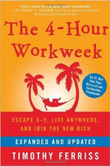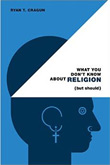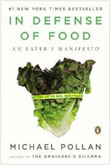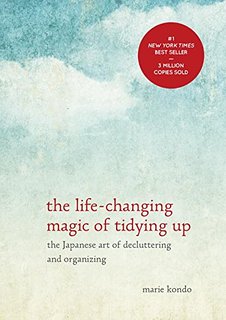A New Year's Resolution
Brandon Sun, January 2, 2012 - David McConkey
Perhaps the most common New Year’s resolution is to lose weight. You’d
think that would be a great way to get ourselves into better shape. And
also to enlist ourselves as citizen warriors in the all-out War on
Obesity.
But the reality is far different. Our quest to lose weight is a big
mistake: for ourselves, for our health, and for our world.
Let me explain. And let me also acknowledge someone who has greatly
helped me better understand this important issue. My sister, Ann
McConkey, is a registered dietitian in Winnipeg. She has a wealth of
insight from her work over the years with the Women’s Health Clinic and
the Provincial Eating Disorders Prevention and Recovery Program. So,
thanks, sis!
The problem with trying to lose weight is that we are confronted by two
almost insurmountable obstacles: biology and economics.
First, biology. When we reduce what we eat in order to lose weight, our
bodies rebel. We have evolved over millions of years to maintain weight
during times of food shortage. If our bodies suspect that a famine is
imminent, then we go into weight-conserving mode. This happens at a
deep inner level, below any level of consciousness.
This explains why almost everyone who goes on a diet will eventually
gain back all (and often more) of the weight that they initially lose.
Go on a few “yo-yo” diet / weight gain cycles and our bodies become
extra resistant to losing any weight.
As a result, many of us become discouraged dieters with our self-esteem
battered. And then we don’t want to even think about exercising or
eating those vegetables like we know we should.
That brings us to the second obstacle: economics. Unhappy people are
just what corporate marketers want. Billions of dollars are to be made
when we crave buying more of everything – including diet programs – in
an endless attempt to feel better.
Making us desire being thin (especially for women) is a very well
planned and well funded effort. Fashion models have been getting
skinnier over the years. Today’s super svelte bodies of magazine models
are increasingly not even real; they are just computer-generated
images. We are trying to live up to an ideal that can’t be achieved.
As we
consume more and more, we feel worse and worse. When shown a picture of
chocolate cake, the top response of Americans is “guilt.” The top
response of the French? “Celebration!”
So, what can we do? Because, after all, we do want to live well and be
healthy. And not just for the first few weeks after New Year s, but for
the whole year and for the years after that.
Fortunately, we have options. Here are four ways to think about
alternative perspectives, to engage in more holistic approaches to
eating and food:
First, put positive practices – eating more healthy foods and getting
more exercise – into a more sustainable context. Don’t think about
losing weight. In fact, try to forget about weight altogether. Embrace
the body you have. Embark on a goal of “health at every size” (being as
healthy as you are able to be in your own body).
Second, think old-fashioned, as an antidote to today’s fad diets, fast
foods, processed foods, and drive-through foods. Instead, think of real
foods that are slow, locally grown, home cooked, and contain
ingredients that one can pronounce. Rather than simply rushing,
consider mindful eating. Check out Michael Pollan’s book In
Defense Of Food: An Eater’s Manifesto.
Third, appreciate the specific notion of “adding” rather than
“reducing.” In other words, look at adding healthy foods to your menu
instead of restricting and denying foods as in dieting. And, when
adding, think nutritious, delicious, intriguing, satisfying.
Fourth, explore eating in a more globally conscious way: eating for our
personal health and for the health of the planet. One aspect is less
meat, again, for our own health and because raising livestock for food
usually consumes more resources than growing plants for food. (A bonus:
this way of eating is usually more economical.) Take a look at Food Matters: A Guide to Conscious Eating, a book by Mark Bittman.
These alternative approaches go against much conventional wisdom. And,
they don’t fit into an easily stated New Year’s resolution.
But why not make a resolution to increase our enjoyment of food, to
increase our awareness of ourselves and the world, and to increase our
promotion of healthy living?
See also:
Authors Offer Food for Thought
Michael
Pollan's Books on Amazon.ca
(on
Amazon.com)
Mark
Bittman's Books on Amazon.ca (on
Amazon.com
)
Popular Right Now:
- 15 Tips for Healthy Eating
- Quality of Life, Well-Being Research Something We Can Feel Good About
- Diets Don't Work, So What Does?
- Political Contributions: Top Ten Canadian Tax Tips
- Nestle Fitness 14 Day Weight Loss Program; What is Wrong Here?
- Charitable Donations: Top Ten Canadian Tax Tips
Must Read Books:
The 4-Hour Workweek:
Escape 9-5, Live Anywhere, and Join the New Rich

What You Don't Know About Religion (But Should)

In Defense of Food:
An Eater's Manifesto

The Life-Changing Magic of Tidying Up:
The Japanese Art of Decluttering and Organizing

Don't
Even Think About It:
Why Our Brains are Wired to Ignore Climate Change

Like This? Share It!
Press Ctrl + D to Bookmark!
